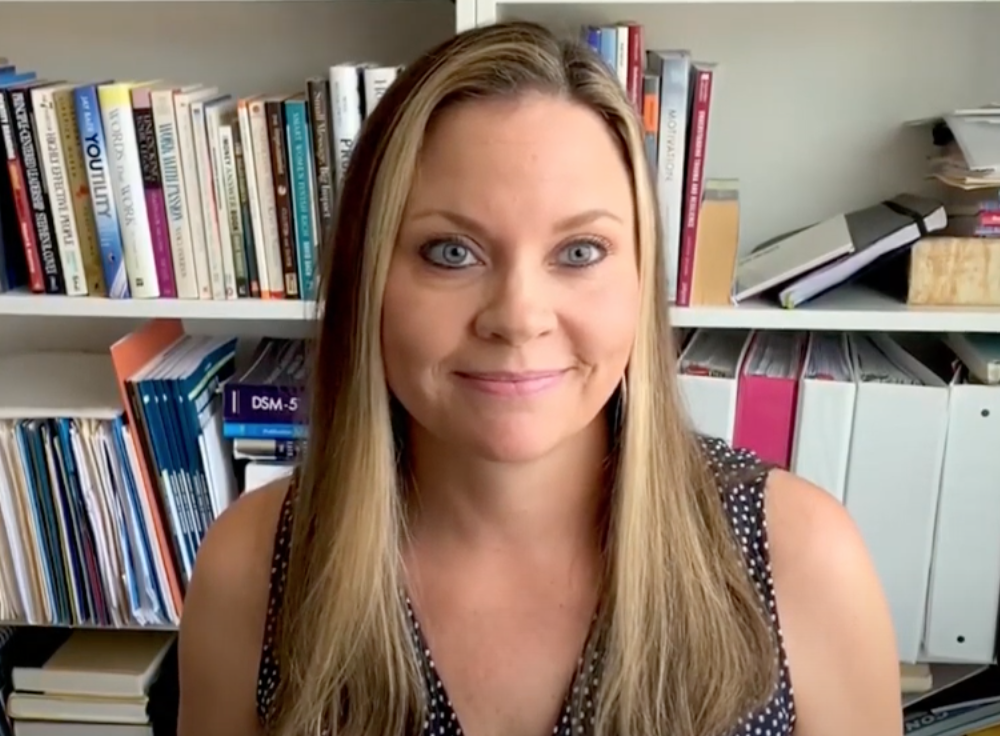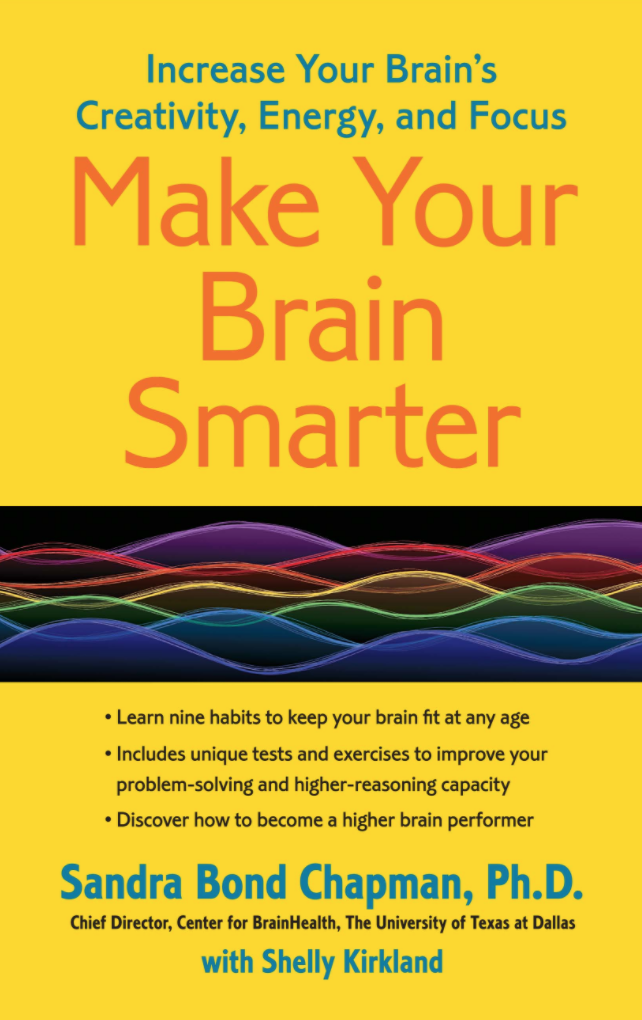Interview by Mary Martin. Photos courtesy of UTD Center for Brain Health.
Melani S. Massey, LCSW-S is a Mindfulness Clinician at UTD’s Center for BrainHealth, with a background in therapy and coaching. The team at The Center for BrainHealth is pioneering the latest research on brain strength and performance, discovering markers of health, drivers of performance, preventive care protocols and interventions for brain recovery. In this interview Melani shares about her work with mindfulness, the connection between physical health and mental health, and some ways we can all take better care of our brains during times of stress.
Can you share how you first began your work around mindfulness and understanding the brain, and how that led you to your current role at the Center for Brain Health at UTD?
I attended my first meditation session in September of 2012. I had no idea what mindfulness or meditation was about, but I had heard great things about the practice of meditation. Like many people, I thought meditation was about clearing your mind and I thought that was something that would be impossible for me. I had done some reading about Mindfulness and decided to give it a try. I began going once a week to a one-hour meditation group. What I learned was that meditation and mindfulness is not about clearing your mind, it’s about becoming aware of your thoughts. I began to notice small changes in my thinking and awareness. I had not noticed before how much my mind was often not on the present moment but was anywhere but the present moment.

Melani S. Massey, LCSW-S
Mindfulness is about present moment awareness and paying attention on purpose. It’s about being able to choose what you pay attention, including paying attention to our thoughts- or not. I became aware of times when I was not engaged in the present moment and began changing that. Becoming a more mindful person changed my life and has helped me to live more fully in the present moment.
Over the next few years, I practiced mindfulness meditation, attended retreats and eventually took a course to teach science-based mindfulness practices. My formal education is in psychology and social work and I have been working with clients for years on changing their mood and behavior by changing their thought, however, you must first be aware of your thoughts in order to change them. I am fascinated by how the brain and the mind work together. Research is showing that using mindfulness meditation actually changes the brain. Brain scans show changes in areas of the brain associated with attention and learning, as well as emotional regulation and perspective taking. When I learned that the Center for BrainHealth was using Mindfulness I knew it was a great fit for me and wanted to be a part of the great things happening at Center for BrainHealth.
How are mental and emotional health connected to the physiology of our brains?
Our brain produces a variety of neurochemicals—this is our neuropharmacy. When we are stressed, our brain produces hormones that ultimately tell our bodies to fight, flee or freeze. Prolonged exposure to stressors can lead to disease and illness. When we perceive things as stressful our bodies respond. This process has been shaped over thousands of years to ensure our survival. For example, if a tiger is chasing us our brain tells us to flee and our body responds. However, when the stressors are our thoughts and not a tiger chasing us, this process can cause harm instead of help.
In this time of increased stress and anxiety, what are some ways we can take care of our brain and overall mental health?
Practicing mindfulness is a great way to mitigate stress. Simply noticing when we are stressed and taking a moment for self-compassion. At the Center for BrainHealth, we recommend taking brain breaks. This is an intentional stepping away from your work and your technology devices for 3-5 minutes to embrace silence and clear your mind. It has the effect of lowering the levels of cortisol, a stress hormone. We recommend taking these brain breaks five times per day.
How is your team working to dispel the myth that mental health is separate from our physical health?
If our bodies are instruments in an orchestra, our brains are the conductor. Everything we experience, perceive, feel and remember is governed by our brain. That’s why we say that without brain health, you don’t have health.
The cognitive neuroscientists at the Center for BrainHealth are expanding our knowledge every day about the brain’s ability to change, adapt, innovate and improve – and that this “neuroplasticity” can last our entire life.
The clinicians on our team take those scientific discoveries out of the lab and into the wild by creating programs and innovative approaches to train people in the myriad strategies they can implement to make their brains stronger, fitter, work better and last longer.
The current pandemic crisis seems to be particularly overwhelming for teens and young adults. Does resilience vary across age groups, and how can young people begin healthy brain habits that will last after COVID-19?
It’s never too soon (or too late) to develop brain-healthy habits and make them part of our daily lives. Young or old, here are three things people should start doing now, and keep doing forever:
-
Get adequate sleep, research suggests 8 hours of quality sleep for optimal brain health.
-
Practice daily mindful breaks. This can be as simple as noticing, on purpose, the sounds in your environment. Or more formally, the breath in a meditation practice. Research on mindfulness practices has found that practicing mindfulness changes the brain, increases happiness and cognitive flexibility.
-
Practice gratitude. This is an emerging area of neuroscience research, but what is known from mental health research is that practicing gratitude improves your mood and increases positive thinking.
What are some of your favorite books or podcasts on the topic of brain and mental health that we should add to our list?

Three suggestions:
-
Mindsight, by Dan Siegel, MD
-
Feeling Good, David Burns, MD
-
Hardwiring Happiness, Rick Hanson, PhD
-
The Upside of Stress, Kelly McGonigal, PhD
The Center for BrainHealth also recommends some books that focus more broadly on brain health and performance:
How can a person learn more about the work going on at UTD’s Center for BrainHealth?
Visit centerforbrainhealth.org and sign up to receive our newsletter to learn about the most exciting brain science taking place right now, as well as information on upcoming trainings, events and talks.
If you or someone you know is experiencing a mental health crisis or suicidal thoughts, please dial 1-800-273-8255 for the National Suicide Prevention Lifeline or text TALK at 741741. For help finding a mental health resource, call the Here for Texas Mental Health Navigation Line at 972-525-8181.